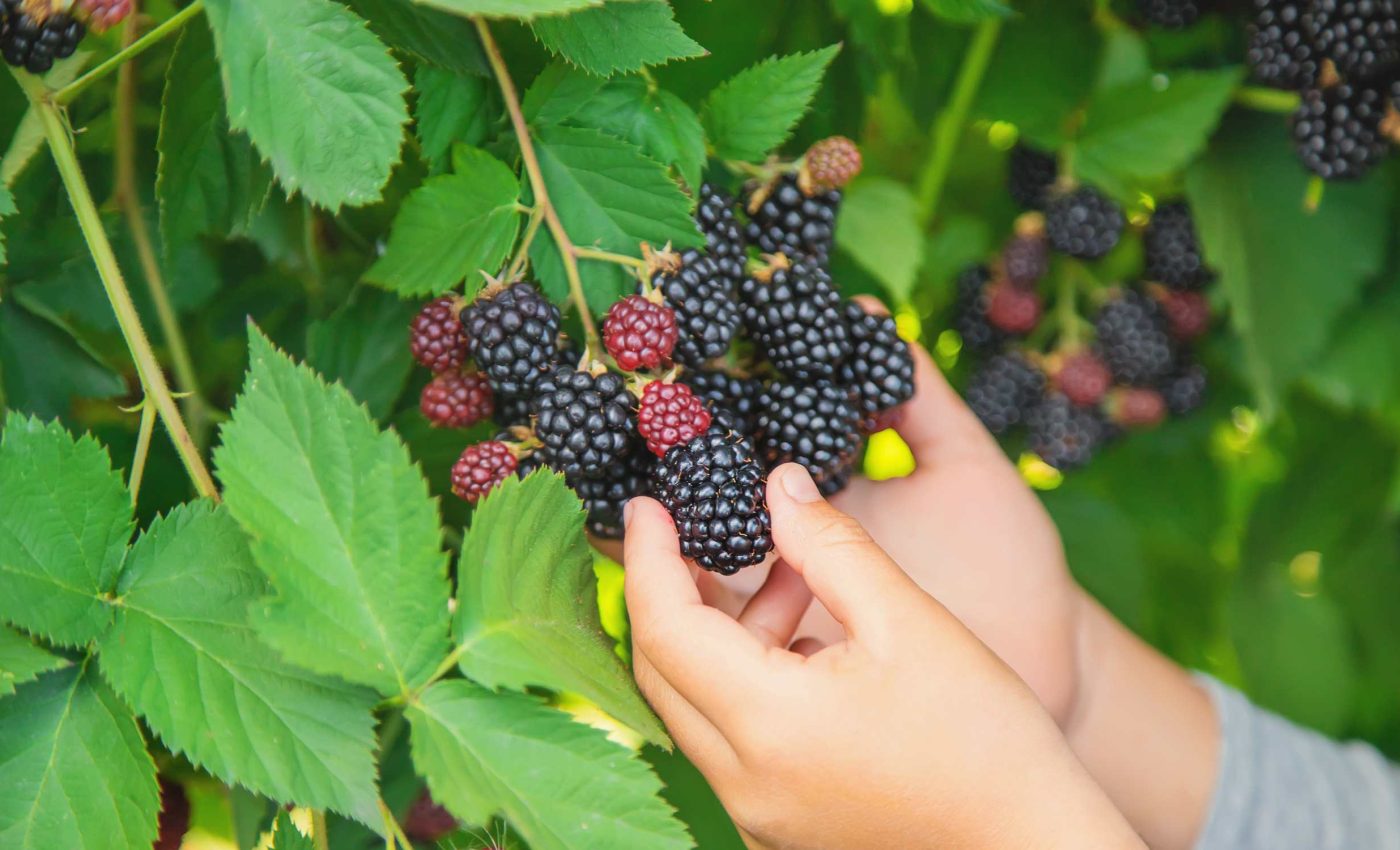
Blackberries may soon be thornless, thanks to genetic breakthroughs
Thornless, disease-resistant, and tastier blackberries may soon become reality. New genetic research from the University of Florida suggests major advances are coming. Farmers looking to recover from citrus declines might soon have new opportunities through blackberry production.
Blackberries have soared in popularity over the past two decades. In the United States alone, farmers now produce 37 million pounds of processed blackberries and nearly 3 million pounds of fresh berries annually.
“Overall, this study not only advances our understanding of blackberry genetics, but it sets the stage for significant improvements in blackberry breeding techniques,” noted Zhanao Deng, a researcher at the University of Florida Institute of Food and Agricultural Sciences (UF/IFAS).
Genetic breakthrough for blackberries
In Florida, blackberries were produced across 702 acres on 277 farms according to the 2022 USDA Census of Agriculture. The release of improved blackberry varieties could boost these numbers significantly.
Blackberries appeal to both health-conscious consumers and growers looking for a high-value crop. With demand expanding, the timing of genetic breakthroughs could not be better for U.S. agriculture.
Building first chromosome-scale genome
Deng and his team at the UF/IFAS Gulf Coast Research and Education Center created the first chromosome-scale, haplotype-resolved genome for a tetraploid blackberry selection known as BL1.
By using Oxford Nanopore sequencing and Hi-C scaffolding, they assembled a highly complete 919 megabase genome across 27 pseudochromosomes. This assembly covers more than 92% of the estimated genome length.
BL1’s genome includes 87,968 protein-coding genes. Over 82% of these have functional annotations, offering rich resources for breeding future cultivars.
Thornless blackberries have special genetics
Blackberries are not simple plants. Many cultivated varieties, including BL1, are tetraploid, meaning they carry four sets of chromosomes.
This genetic complexity made previous genome projects difficult. The BL1 genome, by preserving all four haplotypes, provides an unprecedented level of detail for blackberry research.
“The release of this tetraploid blackberry genome can contribute to more efficient and targeted breeding, ultimately leading to the development of new cultivars with enhanced fruit quality, and resistance to important diseases,” Deng emphasized.
Thornless blackberries could boost farming
Thornlessness has been a key goal for breeders. Thorns complicate harvest, damage berries, and pose risks for workers. The team identified genetic regions responsible for thornlessness and studied related transcription factors.
In addition, their research uncovered key genes regulating anthocyanin production. Anthocyanins are responsible for blackberries’ rich color and antioxidant properties.
“This finding can help us understand why blackberries develop their characteristic deep purple/black color over time and how to potentially enhance this process for more nutritious berries,” Deng said.
Fighting disease with genetics
The team also identified hundreds of disease resistance genes, particularly NLR and MLO gene families. These discoveries could help breeders develop cultivars less dependent on chemical pesticides.
Florida growers, who often face disease challenges like orange cane blotch and leaf spot, could benefit greatly. Varieties with natural resistance would reduce production costs and lessen environmental impacts.
Thornless blackberries could fruit earlier
Another focus was on primocane fruiting, a trait allowing blackberries to fruit on first-year canes. Normally, blackberries fruit only on second-year canes.
Primocane-fruiting varieties could offer multiple harvests per year and thrive in regions with shorter growing seasons. Genes involved in this trait were mapped and analyzed, promising new possibilities for blackberry cultivation.
Future directions for breeding
The reference genome created by Deng’s team unlocks huge potential for improving blackberries. Through better understanding of thornlessness, disease resistance, and anthocyanin production, researchers can breed blackberries suited for diverse climates and markets.
For Florida and the southeastern United States, these advances are especially important. Local farmers could grow blackberries that are easier to manage, more resistant to disease, and highly marketable.
Impact of blackberry genomic research
Blackberries are a $519 million fresh import industry for the United States alone. Globally, over 900,000 metric tons of blackberries are produced annually.
This research not only benefits Florida but could reshape blackberry production worldwide. Better berries mean better profits for growers and healthier options for consumers.
With genomics leading the way, a thornless, disease-resistant, and tastier blackberry future looks closer than ever.
The study is published in the journal Horticulture Research.
—–
Like what you read? Subscribe to our newsletter for engaging articles, exclusive content, and the latest updates.
Check us out on EarthSnap, a free app brought to you by Eric Ralls and Earth.com.
—–













